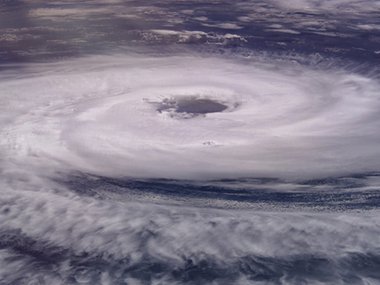Question Your World: Why Don't Hurricanes Happen at the Equator?
Mid-September is traditionally considered the peak of hurricane season. These turbulent storms develop in the oceans, but are there any places along the world’s oceans that don’t experience hurricanes?
Actually, there are many! Cities with relatively close proximity to an ocean—such as Singapore, Nairobi or Quito—have no fear of hurricanes.
Why? Because hurricanes never cross the equator. In fact, any place within 5 degrees of the equator is exempt from hurricane stress!
So, why can’t hurricanes cross the equator? The answer, my friend, is blowing in the wind … and there’s some neat geophysics involved here, too.
Let’s dive into the science behind this mystery. Hurricanes, also known as tropical cyclones and typhoons, rely on a phenomenon called the Coriolis effect to spin and develop.
This effect is due to Earth’s rotation, causing moving air to twist in a circular motion. At the equator, however, the Coriolis effect is nearly zero. This means there’s not enough twist to fuel a hurricane.
Imagine trying to spin a top without twisting it—that’s what it’s like for hurricanes at the equator. Without this spinning force, hurricanes can’t sustain their structure or continue their journey.
These storms form and thrive in the tropics, where the water is warm and conditions are just right. When they approach the equator, the lack of Coriolis effect makes it impossible for them to maintain their strength.
In summary, hurricanes have a specific range they can and can not exist within thanks to the Earth’s own geophysics! Of course this does not apply to us in Virginia, where we’ve experienced many hurricanes over the years.
Since it's National Preparedness Month, here's your friendly reminder to always keep a preparedness kit ready. And in this peak hurricane season, check your supplies again and replace expired items so you have everything you need in the event a storm heads our way.
Stay prepared and stay connected for more cool geophysics news as it develops!

